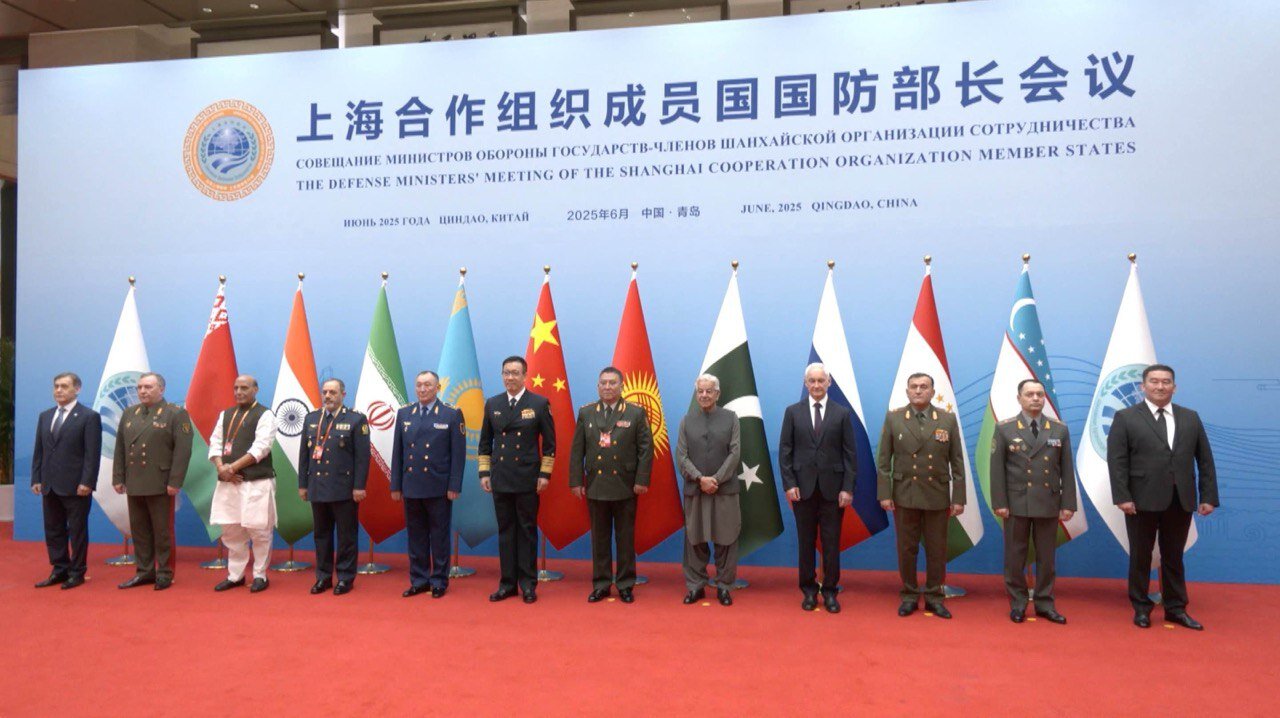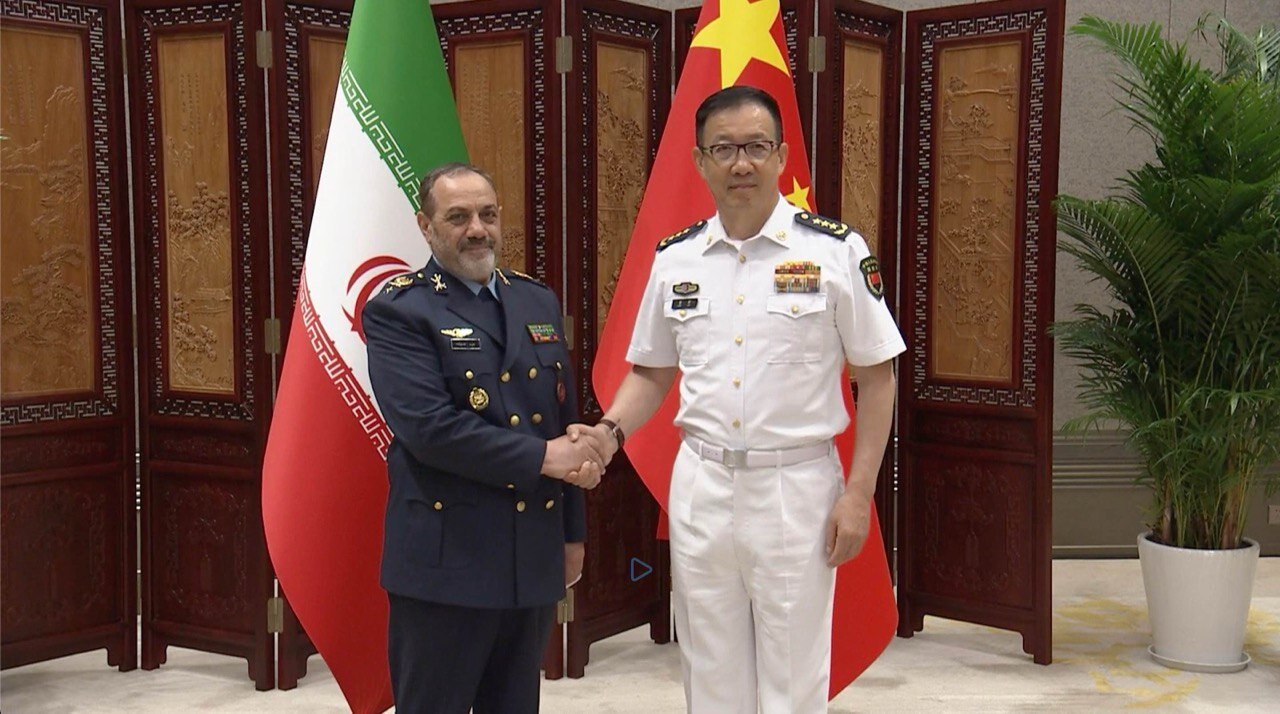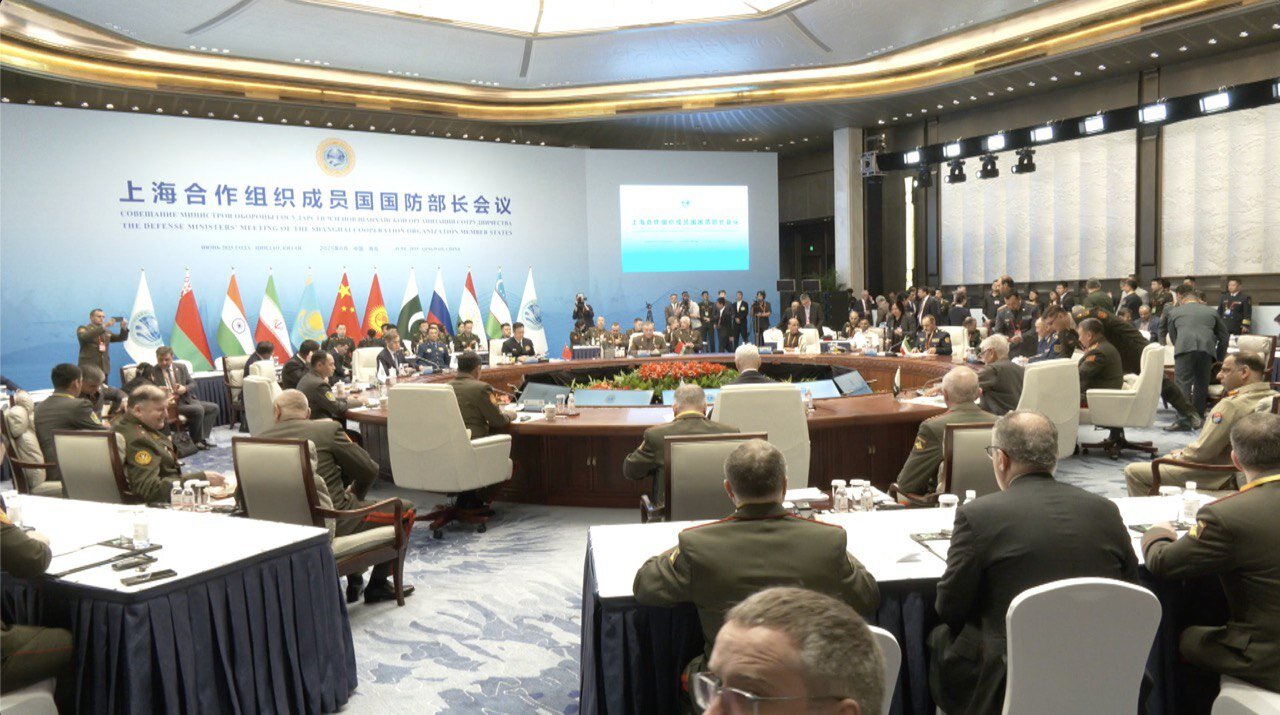SCO Defense Ministers Convene in Qingdao Amid Rising Global Tensions

QINGDAO, China — Against the backdrop of intensifying global conflicts, defense ministers from the ten member states of the Shanghai Cooperation Organization (SCO) convened this week in China’s eastern city of Qingdao, reaffirming their commitment to dialogue, multilateralism, and regional stability.
Hosted by Chinese Defense Minister Dong Jun, the annual SCO Defense Ministers’ Meeting on June 26 emphasized strategic coordination in the face of growing international uncertainty—particularly as tensions escalate in the Middle East and Eastern Europe.
China, Iran reaffirm cooperation amid crisis
During a bilateral meeting on June 25, Chinese Defense Minister Dong met with his Iranian counterpart Aziz Nasirzadeh, who is in China to attend the SCO gathering. Dong reaffirmed China’s support for Iran’s legitimate position and criticized unilateralism and hegemonic behavior, calling them major sources of global instability.
“In a world undergoing profound changes, unilateralism, protectionism, and power politics are eroding the international order,” Dong said. “The defense departments of SCO member states must uphold the SCO’s founding principles, deepen practical cooperation, and safeguard a peaceful environment for development.”
In response, Minister Nasirzadeh thanked China for its understanding and support in the face of the recent aggression.
“Iran has recently come under attack, and we are grateful for China’s just position. We hope China will continue to play a constructive role in preserving the ceasefire and easing regional tensions,” he said.

In a joint statement released on June 23, the SCO expressed serious concern over the recent escalation in the Middle East, strongly condemning the United States' military strike on Iran’s nuclear facilities, which the organization said violated international law, the UN Charter, and the SCO Charter, particularly the principle of non-use of force in international relations.
“The attack on Iran’s sovereignty and territorial integrity has seriously undermined regional and global peace and stability,” the statement read, calling for the crisis to be resolved through political and diplomatic means.
Regional security and unity in focus
The meeting also saw defense chiefs from India and Pakistan share the same table for the first time since a military flare-up in Kashmir last month. Belarus and Iran, the SCO’s newest full members, participated in the event for the first time in this capacity—highlighting the organization’s growing breadth and influence.
Dong welcomed all attendees with a call for greater defense coordination under the Global Security Initiative proposed by Chinese President Xi Jinping, which promotes common, comprehensive, cooperative, and sustainable security.
SCO’s evolving role as a stabilizing force
Xiao Bin, Deputy Secretary-General of the SCO Research Center at the Chinese Academy of Social Sciences, described the SCO as a rare example of a multilateral security platform that emphasizes non-alignment, non-confrontation, and consensus-based cooperation.
“It plays a unique role in stabilizing the regional landscape, curbing destabilizing factors, and promoting peaceful dialogue in times of conflict,” Xiao said.

As the rotating chair, China has overseen a year of active defense diplomacy. According to Senior Colonel Zhang Xiaogang, spokesperson for China’s Ministry of National Defense, recent SCO events have helped build trust and amplify the organization’s collective voice on global security.
“These meetings provided a vital platform for dialogue and consensus-building among all member states,” Zhang noted. The Qingdao meeting, held in a city symbolic for being where China first proposed the “SCO Community of Shared Destiny” in 2018, delivered a timely reminder of the group’s mission: to uphold peace, sovereignty, and shared development in an increasingly fragmented world.
As tensions mount across multiple regions, the SCO has emerged as a platform where strategic communication, mutual respect, and regional cooperation can still flourish.
(Source: CGTN)
Leave a Comment